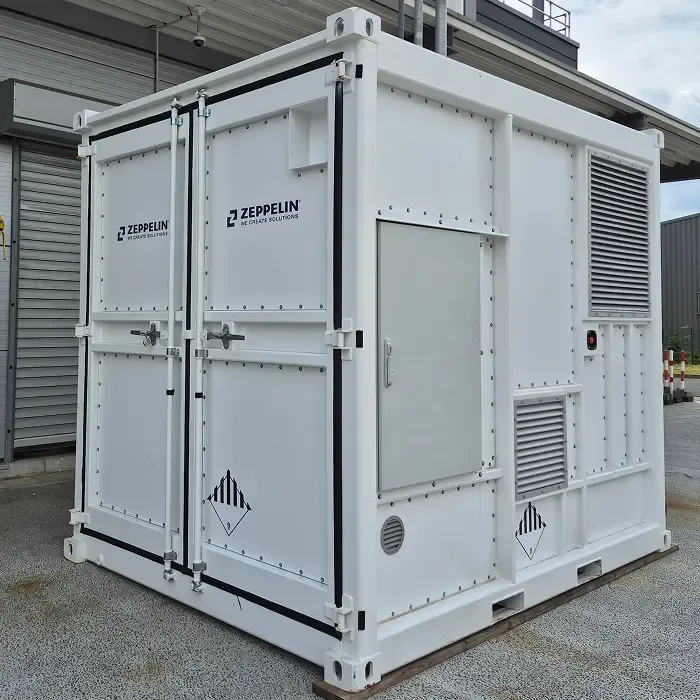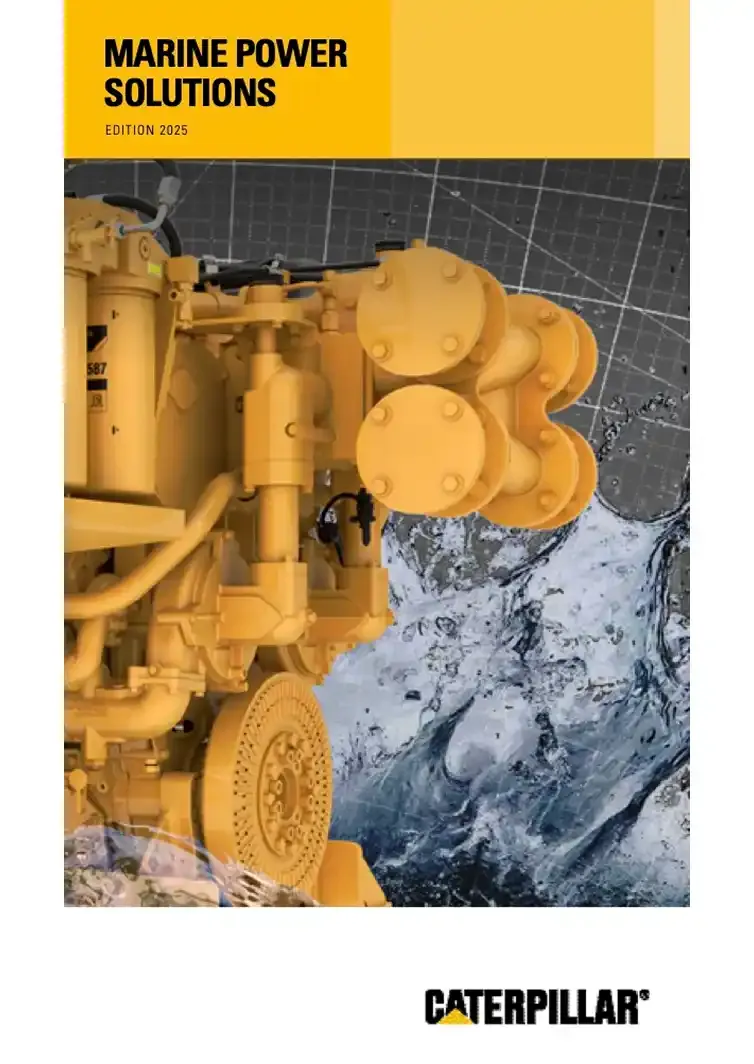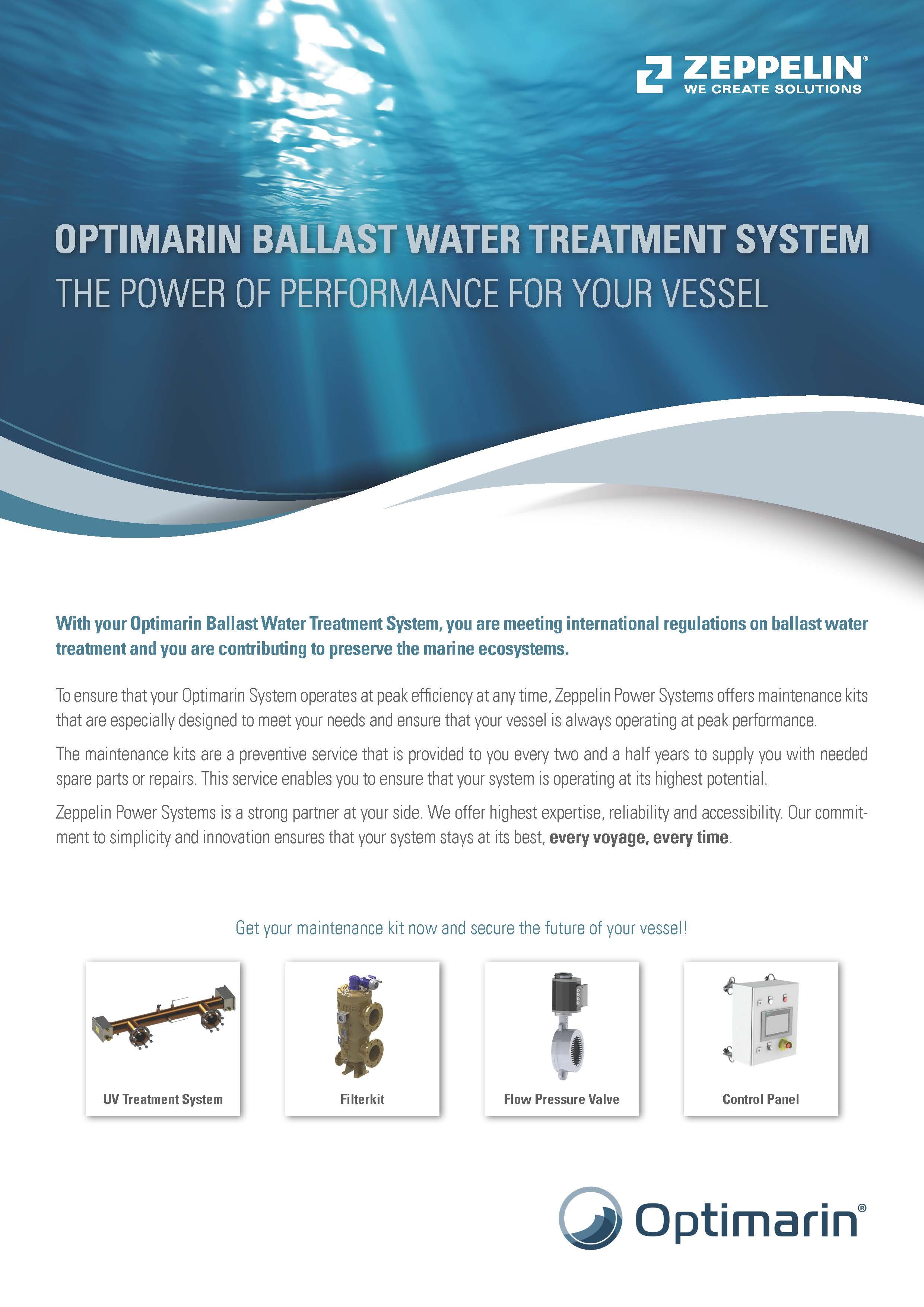Our solutions help you meet the stringent emissions standards in the maritime industry
Exhaust aftertreatment systems for marine engines are essential for reducing ship emissions and complying with international environmental regulations. These systems, including catalysts and diesel particulate filters, neutralize or remove pollutants such as nitrogen oxides (NOx), sulfur oxides (SOx), and particulates from exhaust gases. They significantly contribute to reducing environmental impact in coastal areas, on the open sea, or in inland waterways.
Our modern solutions, such as the Cat Airless SCR (Selective Catalytic Reduction) and Cat Air Assist SCR, offer tailored approaches to reducing pollutants in marine engine exhaust gases. Whether for smaller engines or high-powered drives, our systems ensure compliance with international, EU emissions standards and the strict regulations in inland shipping, contributing to sustainable shipping practices.
Available for you 24/7
Germany
International
Key benefits for your organization
Reduction of pollutants
Exhaust aftertreatment systems significantly reduce emissions of nitrogen oxides (NOx), sulfur oxides (SOx), carbon monoxide (CO), particulate matter (PM), and unburned hydrocarbons (HC). This improves air quality and contributes to environmental protection.
Compliance with environmental regulations
By using exhaust aftertreatment systems, ships can meet international environmental standards, thereby avoiding potential fines and operational restrictions.
Future-proof
The use of modern exhaust aftertreatment technologies ensures that ships can comply with future, potentially stricter environmental regulations, securing their long-term profitability and operational viability.
Enhanced operational flexibility
By installing exhaust aftertreatment systems, ships can operate in special emission control areas that require strict exhaust standards. This allows operators to respond flexibly to international trade routes and access additional markets.
Zeppelin Power Systems Solutions for Marine
SCR Systems: Advanced solutions for your exhaust aftertreatment

In our modern Cat engines, an exhaust cleaning system is installed after the combustion process to effectively clean the exhaust gases. These systems are a crucial component of the engine, as very few engines are clean enough to operate without the need for additional aftertreatment.
Flexibility in exhaust cleaning with Cat Airless SCR and Cat Air Assist SCR
Cat Airless SCR
The Cat Airless SCR solution is suitable for lower-power engines. It consists of two cylinders, one containing the catalyst and the other the particulate filter. A separate control unit manages the urea injection, including the necessary pumps and control technology. A key advantage of the Airless SCR system is that it does not require compressed air for the urea injection. For larger engines with higher power, multiple units can be used, or the system can be upgraded to the Air Assist SCR.
Cat Air Assist SCR
This system is designed for higher-power engines and requires air pressure to inject the urea. The Cat Air Assist SCR is available with different numbers of bricks, known as cleaning bricks. These bricks ensure effective exhaust cleaning and adapt to the performance requirements of the engine.
For exceptionally high power ranges, both solutions can also be combined.
Do you have any questions about our exhaust aftertreatment systems? We’re happy to assist you.
Zeppelin Power Systems Solutions for Marine
Compliance with stringent emissions standards through our innovative aftertreatment technology

Our easy-to-install Cat SCR systems are exhaust aftertreatment solutions that provide a sustainable way to reduce NOx emissions without compromising the efficiency of Caterpillar ship engines, while delivering the durability and reliability our customers expect.
Optimization for EU Stage V and IMO III: Efficient emissions reduction through state-of-the-art technologies
We can optimize marine engines to meet EU Stage V standards, which impose stringent limits on the emission of pollutants such as nitrogen oxides (NOx), carbon monoxide (CO), hydrocarbons (HC), and particulate matter (PM). To meet these standards, we integrate diesel particulate filters and our innovative SCR systems into the engines.
In accordance with IMO III regulations, ship engines with more than 130 bkW must comply with strict NOx emission limits. Our solutions significantly reduce nitrogen oxide (NOx) emissions and are specifically designed for use with the current IMO II ship engine models, such as the Cat C32, 3508C, 3512C, and 3516C. This technology allows the urea dosing system to be switched off (from IMO III to IMO II mode) while operating outside of emission-controlled areas.
CAT Clean Emission Module (CEM) and Selective Catalytic Reduction (SCR)
The SCR system for Cat marine applications has been developed with a compact and easy-to-install Clean Emission Module (CEM). This ensures an optimally tuned system with minimal impact on the ship's design. The dosing cabinet connected to the SCR module controls the NOx reduction process and communicates with the engine control and monitoring system to ensure the safe operation of both the SCR system and the engine.
Do you have any questions? We are happy to assist you in selecting an exhaust aftertreatment system.
From development to service – your complete solution for exhaust aftertreatment
Zeppelin Power Systems offers comprehensive solutions for exhaust aftertreatment systems for engines. Our experienced team develops customized and efficient systems specifically tailored to the emission requirements of your engines. With our full-service offering, we ensure that your engines operate reliably, environmentally friendly, and future-proof.
Planning
- Consulting
- Concept Development
- Project Engineering
Engineering
- Electrical & Installation Planning
- Process Technology
- CAD-based Planning
Project Management
- Site Management
- Technical Procurement
- Quality Assurance
Plant Construction
- Electrical Installation
- Assembly
- Commissioning and Test Run
Service
- Maintenance
- Routine Servicing
- Troubleshooting Service
Exhaust aftertreatment is essential for modern marine engines
Exhaust aftertreatment systems are now an integral part of modern marine engines and essential for operation in an increasingly environmentally conscious world. These systems, including technologies such as SCR catalysts and scrubbers, are specifically designed to drastically reduce harmful emissions like nitrogen oxides (NOx), sulfur oxides (SOx), and particulate matter (PM). This is especially crucial for complying with stringent international emission regulations, such as the MARPOL agreements.
Marine engines often operate under extreme conditions and high loads, which can lead to increased pollutant emissions. By integrating exhaust aftertreatment systems, ship owners can not only significantly reduce environmental impact but also ensure operation in emission control areas (ECA), where particularly strict limits apply.
Exhaust aftertreatment systems not only help meet legal requirements but also enhance the reputation of shipping companies committed to sustainability and environmental protection. Overall, exhaust aftertreatment systems are indispensable for modern shipping and ensure that marine engines can operate efficiently, environmentally friendly, and future-proof.
Catalysts and diesel particulate filters are commonly used technologies in exhaust aftertreatment systems
SCR systems (Selective Catalytic Reduction) are particularly effective and widely used to reduce NOx emissions. They use a catalyst and a reducing agent, often ammonia or urea, to convert nitrogen oxides into harmless nitrogen and water.
Diesel particulate filters (DPF) capture soot particles and other solid pollutants generated by the combustion of heavy fuel oil or diesel. The collected particles are either removed through regular cleaning or burned off via special regeneration processes.
Improper driving negatively impacts the efficiency of SCR systems
Improper driving can significantly impact the performance and efficiency of SCR systems. When a vehicle is frequently operated at low RPMs or on short trips, the required operating temperature is not reached, resulting in inefficient NOx reduction. This can lead to incomplete combustion and deposits in the SCR catalyst, shortening the system's lifespan. Regular maintenance and proper driving behavior are therefore essential to ensure the functionality of the SCR system and comply with environmental regulations. We are happy to provide advice on this matter.
Zeppelin Power Systems Industry applications for Marine
Exhaust aftertreatment systems for various marine applications
Exhaust aftertreatment systems are crucial for a variety of marine applications to meet stringent emissions regulations and minimize environmental impact. They not only contribute to the protection of the marine environment but also ensure the sustainable and efficient operation of ships in various operational areas.
Zeppelin Power Systems Solutions for Marine
Forward-thinking propulsion solutions and more for modern shipping
Show all Solutions for MarineZeppelin Power Systems Products for Marine
Robust and reliable products for your marine application
Show all Products for MarineZeppelin Power Systems Resources for Marine
Brochures available for Download
Show all Resources for MarineZeppelin Power Systems Portfolio














